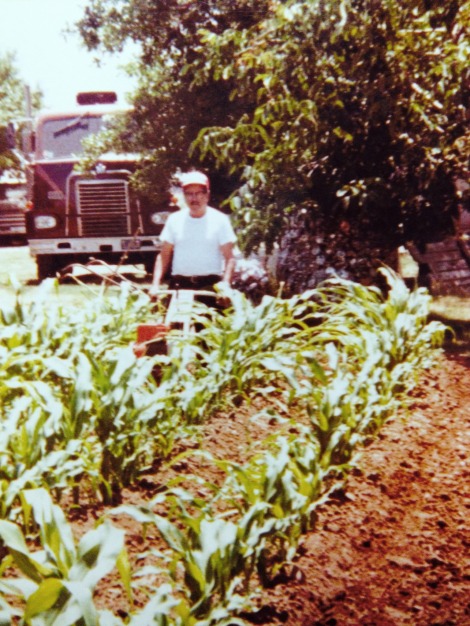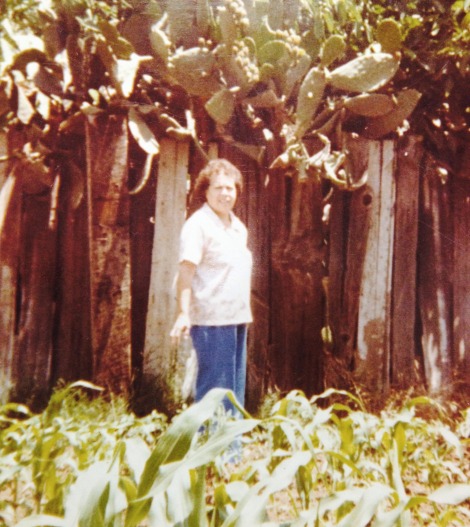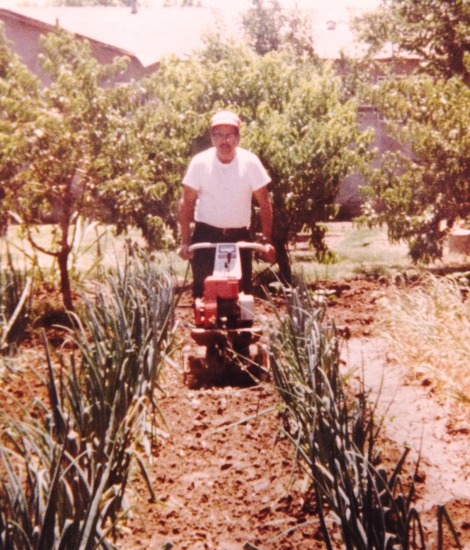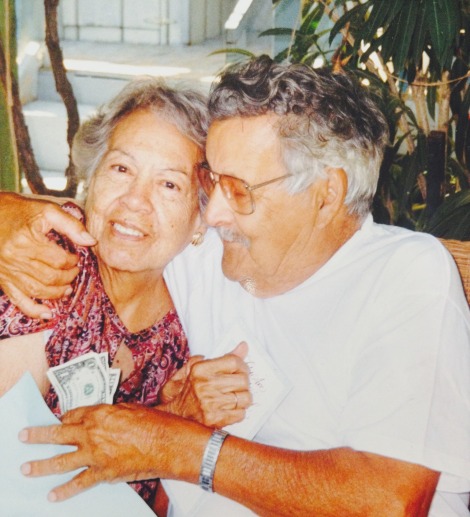By Rena Payan
At twilight hours I think often of my grandfather. When I speak of him it is with great love and appreciation, but I know he was not a perfect man—he was human, fallible. But this also gives me hope, as I am the same.
He carted his children and wife from state to state, dirt-floored work camp to dirt-floored work camp, set in the pride of not accepting a hand-out. He toiled, sweat, and bled with the land. When he and my grandmother had saved enough to settle they did it in familiar surroundings. Placing roots in the central valley, Merced to be exact, afforded them the consistent work they had become accustomed to. With eleven children, it was expected that everyone work in the fields. And so the modern day dust bowl was alive and well, only without the compassion of Steinbeck to document it. Living the life of a migrant worker and experiencing the prejudice against the darkened skin, the assumption of language, and the belief that hard work somehow made one less, was commonplace—and my parents still live with the weight of those formative experiences. In a perfect world, those would be distant perspectives, a blip in history, but we all know it is not.
The Western view of what Latinos do in agriculture is still tainted by the belief that to work the land is to be separate from civility. Growing up in the Central Valley taught me this: to be dark as the soil that grew rice, watermelons, tomatoes, and almonds, was to be dirty, ignorant, and deserving of suspicion. Luckily, growing up with my grandfather taught me differently. In part due to his stubbornness, his refusal to give up working the land, because of this imperfection, I can now look back on my childhood and know some of the greatest lessons one can learn.
After years of farm work, my grandfather made the transition to long-distance trucker, and although he never returned to field work, he never lost touch with the importance of caring for that which provided for you.
There isn’t a time in my life, in which the garden that he kept year round was not producing something, that made it into the delicious foods my grandmother fed us every Sunday. I can imagine every different position in their backyard that the garden sat in, depending on the year, the season, a lesson in never taking too much from the land, always rotating, to allow for rest and replenishment, just like any weary soul needs, so too does the land.
I can measure my years by how I slowly but steadily I grew taller than the tomatoes in the summer, watching the vines shrink and wither in the hot August heat, to be pulled and composted—my Grandfather reminding me that even as things pass through life, death is an important part and that nothing is truly gone. I can see him sweating in the Spring as he tilled the plot in preparation for planting, serving as a lesson that ALL things need the space to breath. In order to grow healthy, sometimes we have to be pulled apart and allowed to resettle to be fruitful.
Lastly, I can see his hands as the years pass, the darkness against his white t-shirt or khakis as he wipes them free of the juices that run from the watermelon or cantaloupe he has just cut for us, never letting us forget to celebrate the hard work, to drink in those moments in the sun, to not be hardened by the inevitable rain, because both are needed to grow. The disdain of brownness, the fear of being reminded that none of us are too far removed from back-breaking work that growing up in the Central Valley tried to instill in me, the desire to measure my growth by the nature around me and to commune with the land that the Central Valley tried to beat out of me—my Grandfather in his imperfect and infinite wisdom gave me with every season and every harvest. Never letting me stray too far from that which he knew to be true: To be outdoors was to be Home.



